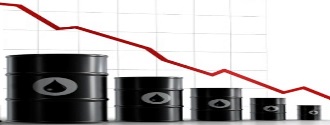Divisions between the world’s major oil producers were laid bare on Tuesday as markets dismissed the prospect of an emergency Opec meeting to cut production levels.
Forward contracts for Brent crude fell by as much as 4.5pc to $32.70 a barrel, despite comments from Russia’s foreign minister that Moscow was ready to “cooperate” with its rivals to halt an 18-month price rout.
Moscow’s Sergei Lavrov said Russia shared a “common interest” with the 13-member cartel to stabilise the over-supplied market after prices hit highs of $110 in June 2014.
“We are open to further cooperation if there is a desire from everyone to really hold this meeting spoken about,” said Mr Lavrov, referring to an emerging Opec gathering as early as this month.
The comments, from the most senior Kremlin official yet, are the latest in a series of hints that the world’s largest non-Opec producer is ready step back from its battle with rivals such as Saudi Arabia over capturing the world’s market share.
• Hopes of Saudi-Russian entente sends oil price rocketing
Russian Foreign Minister Sergey Lavrov holds headphones during a joint press conference in the UAE
But investors seemed unconvinced by the rhetoric. West Texas Intermediate – the US benchmark – fell as much as 3.9pc to $30.39 in mid-afternoon trading.
Mr Lavrov’s comments were also dampened by new figures that showed Russian oil companies remained on a relentless drive to flood markets last month.
Russian oil production hit fresh post-Soviet Union era highs in January, reaching 10.88m barrels a day, an increase of 80,000 barrels from December 2015.
Oil prices staged a storming rally at end of last week after Russia’s energy minister hinted the Kremlin was discussing taking as much as 500,000 barrels a day off the market.
Saudi Arabia, Opec’s largest producer, has said it will only talk about paring back its own supply if nations outside the group also agree to step back from the pumps.
The Kremlin is now at a position where it has to choose between further spending cuts or drawing down its sovereign wealth funds
Energy Aspects
But analysts said the prospect of a production cut remained distant, as it was weaker Opec members such as Venezuela, rather than Riyadh, that were pushing for an emergency meeting as soon as this month.
“These calls have been ignored by Saudi Arabia and other [Gulf] members time and time again,” said analysts at Energy Aspects.
Moscow has softened its stance on a co-ordinated production cut as the unprecedented price rout begins to bite for its beleaguered economy.
Russia is in the midst of its worst recession in six years and is demanding ministries cut spending by 700bn roubles (£6.12bn) this year to address a ballooning budget deficit.
The Kremlin has also been forced to downgrade its oil forecasts to $40 this year, against an original estimate of $50 in its 2016 budget.
Fitch Ratings warned that a persistent failure to meet spending targets and a weakening of the government’s balance sheet as it burns through its reserves, would result in a sovereign downgrade.
“The Kremlin is now at a position where it has to choose between further spending cuts or drawing down its sovereign wealth funds, which may be more palatable given upcoming elections,” said analysts at Energy Aspects.























